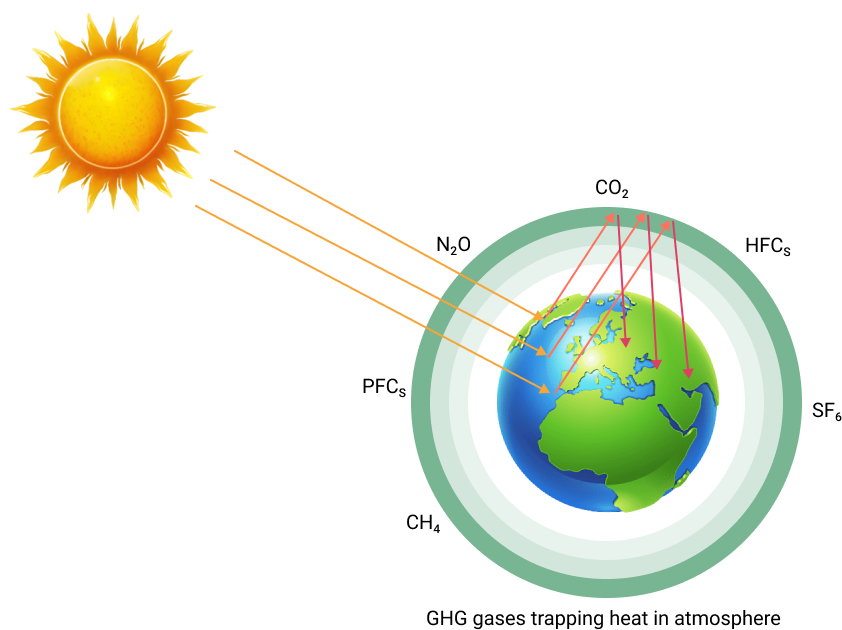Introduction
Sustainable development is essential for success in this period of rapid growth and development. In the past, businesses were solely concerned with production at lower costs and utilizing inexpensive power resources. They were not concerned about the environment. However, in the twenty-first century, industry stakeholders and investors are more concerned about climate change and global warming because they know these issues will have long-term effects on industry supply chains, the environment, and people. The global economy is being impacted by climate change and global warming in a number of ways. Various steps are being taken by nations and world leaders to lessen or minimize the global warming impact of industrialization. SBTi, CDP, BRSR, IFRS, UN SDGs, carbon reporting, and setting national emission targets are the essential steps toward sustainable growth of the industries.
What are greenhouse gasses and how is it impacting our evolving climate?
The gases that trap heat in the earth’s atmosphere are referred to as greenhouse gases or GHGs. The earth’s surface warms during the day as a result of sunlight penetrating the atmosphere. The earth’s surface cools at night, returning heat to the atmosphere in the form of Infrared radiation. Greenhouse gases absorb and reemit infrared light from the atmosphere down to the Earth’s surface, rather than escaping back into space. The main greenhouse gasses include carbon dioxide, methane, nitrous oxide, and synthetic chemicals. These gasses have a long lifespan and persist for a long time in the atmosphere. Anthropogenic activities, such as burning fossil fuels, and vehicular emissions have increased greenhouse gas concentration in the atmosphere, leading to global warming. This process disrupts the balance between incoming solar energy and outgoing energy, affecting climate and weather patterns globally and regionally.

What is Carbon Accounting?
Carbon accounting and GHG accounting refers to the process of quantifying and tracking the amount of carbon dioxide (CO2) and other greenhouse gasses emitted or removed from a particular activity, organization, sector, or geographical area. It involves measuring, reporting, and managing greenhouse gas emissions to better understand and mitigate their impact on climate change. GHG emissions are the result of the various activities of combustion, leakages, and processes. Identification of sources, measurement of gas concentration, and calculation of all gases equivalent to carbon are part of carbon accounting. In order to accurately quantify emissions and meet industry goals and targets, carbon accounting is a critical and significant step.
